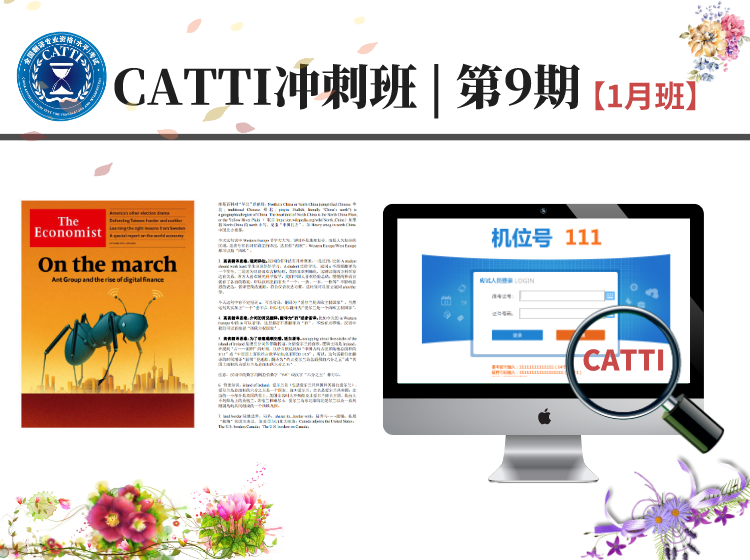2017年11月5日纽约时报:为什么全世界都热爱纽约?分享
Why the World Loves New York
为什么全世界都热爱纽约?
NEW DELHI — I remember so well the first time I visited New York. I was 13, and though I had been to America once before, New York had deliberately been kept from me. The name alone conjured an adult world of glamour and excitement, the mythic New York of the 1980s: Andy Warhol and Studio 54. “It’s not a place for children,” my mother said firmly.
新德里——我还清楚地记得第一次去纽约时的情景。当时我13岁,虽然之前去过一次美国,但纽约被刻意避开了。光是这个名字就会让人想起一个充满光彩和激情的成人世界——20世纪80年代的纽约神话:安迪·沃霍尔(Andy Warhol)和54俱乐部(Studio 54)。“那不是一个适合孩子去的地方,”我母亲坚定地说。
And my God, was she right! Within moments of our arrival in Manhattan, the gay pride parade started. It was not then the tame, corporate affair it is now. It was a bacchanal. There were not one, but two parades, and we were swept up — myself, my mother and her friend, a longtime New Yorker — in the unofficial one heading down Fifth Avenue. It was a roistering river of humanity, half in leather, half nude. Unruly regiments, hair blue, pink and green, went past, covered in glitter, tattoos and fairy dust.
然而她说得可太对了!我们刚到曼哈顿不久,同性恋骄傲大游行就开始了。那时候不像现在这样,已经是一个平淡无奇的团体活动。那时候,它就像一个狂欢节。游行实际上有两场,而不是一场。我和妈妈以及她久居纽约的朋友被卷入第五大道的非正式游行队伍中。那是一条奔涌的人河——其中一半裹着皮革,一半是裸体。一群无拘无束的人从我们身边经过,头发染成蓝色、粉色和绿色,身上覆盖着亮片、纹身和仙尘。
For a sheltered teenager from India, it was all deeply shocking, and deeply exhilarating. It was 1994. The AIDS epidemic raged and gay rights were a distant dream; the parade was full of the spirit of revolution.
对我这个一直被家人呵护的印度少年来说这一切非常震撼,令人兴奋不已。那是1994年。艾滋病肆虐,同性恋权利还是一个遥远的梦想,游行充满了革命精神。
I did not know at the time that I would later return to the city for the very same freedoms that were being fought for in the street that day. What I do know is that the Delhi prude in me died that June afternoon. I watched my mother’s friend, a tall statuesque woman, stride casually into a restroom. When a big, burly man tried to point out that it was the men’s toilet, she said, “So? This is New York!”
当时我并不知道,我后来会回到这座城市,为的正是那天人们在街上争取的那些自由。我只知道,在那个六月的下午,我身上过于正经的德里气质消失了。我看见妈妈的朋友,一个身材高挑端庄的女人,随意走进一个洗手间。一个大块头男人想提醒她那是男厕所,她说:“那又怎样?这是纽约!”
It’s hard not to think of that time now. Most of the eight people killed in the terrorist attack in Lower Manhattan on Tuesday were foreigners visiting New York. One group, especially — five friends from Argentina celebrating the 30th anniversary of their high school graduation — had been planning their trip for years. They were part of a great unorganized commonwealth of people, out in the world, whose imagination New York has captured. It is heartbreaking to think that those for whom the dream of New York is most alluring should be the victims of so vivid a nightmare.
现在很难不去回想那个时刻。在周二曼哈顿下城发生的恐怖袭击中丧生的八人,大多是来纽约的外国游客。尤其是那五个庆祝高中毕业30周年的阿根廷人,他们计划这趟旅行好多年了。他们属于一个伟大的世界无组织共同体的一部分,纽约是这个共同体向往的地方。对这些人来说,纽约是最迷人的梦想,可他们却成了这个噩梦般事件的受害者,这真是让人心痛。
I now live for part of the year in New York. My husband is here, and the city is my adoptive home. We who are fortunate enough to complain of delayed trains, traffic and astronomical rent often forget the power of the city as a symbol in the world beyond. I lived for years, on the outside, hankering after New York. I had spent one magical year here after college, living as a lodger in the Bowery loft of the feminist writer Kate Millet. I was here for the great blackout of 2003, when people poured joyously into the streets, and underwear parties broke out in bars.
我现在每年有一部分时间住在纽约。我丈夫在这里,这座城市是我的第二个家。我们这些可以有幸抱怨火车晚点、交通堵塞和天价房租的人,常常会忘记这座城市作为理想世界象征的力量。多年来我在别处生活,对纽约朝思暮想。大学毕业后,我在这里度过了神奇的一年,借住在女权主义作家凯特·米利特(Kate Millet)的包厘街大开间公寓里。2003年大停电时我在这里,人们兴高采烈地涌上街头,内衣派对在酒吧里爆发。
In youth, it is easy to mistake New York as a sphere of license. But, as I got older, the city acquired a deeper meaning. I was here when my father, a politician in Pakistan, was the victim of a terrorist attack, killed in 2011 by his own bodyguard for defending a Christian woman accused of blasphemy. The next day, a cold January morning, I trudged past the small hillocks of begrimed ice that had formed on the curb, and bought a copy of this newspaper at a deli at Avenue A and Third Street. A picture of my father’s killer was on the front page.
年轻时,你很容易误把纽约当成一个自由的世界。但是,随着年龄的增长,这座城市的内涵也加深了。我的父亲是一名巴基斯坦政治人士,在一次恐怖袭击中遇难——2011年,他因为维护一名被指渎神的女基督徒而被自己的保镖杀害——当时我在纽约。第二天,在那个寒冷的一月的早晨,我步履沉重地跨过路边堆积成小山丘的脏冰块,在A大道和第三街的一家熟食店买了一份《纽约时报》。它的头版上刊登着杀害我父亲的凶手的照片。
I left New York a day later and did not return for years.
一天后,我离开了纽约,很多年没再回来。
But, all the time that I was away, the city came more and more to seem like a sanctuary. The freedoms that had seemed superficial turned out to have a more profound meaning: New York was where I would return when a populist demagogue took power in India. New York was where I would marry, and live freely, with a tall white man from Tennessee. New York was where I would feel insulated when a populist demagogue took power in America.
不过,在我离开的那段时间里,这座城市变得越来越像一个避难所。曾经看似肤浅的自由有了更深刻的意义:如果一名民粹主义煽动者在印度掌权,我会回到纽约。纽约是我和一个来自田纳西州的高个子白人男人结婚并自由生活的地方。当一名民粹主义煽动者在美国掌权时,纽约会让我感觉受到保护。
The Austrian writer Stefan Zweig was in New York a hundred years ago, as his own world of the Austro-Hungarian Empire was on the eve of ruin. He saw “foaming cascades of light in Times Square” and marveled at the city’s “captivating nocturnal beauty.” One thing that struck Zweig, a Jew who would die by his own hand in 1942 as Nazi night fell over Europe, was this: “No one asked about my nationality, my religion, my origin,” he wrote in his memoir. “But there was work waiting for people to do it, and that was all that counted.”
一百年前,奥地利作家斯蒂芬·茨威格(Stefan Zweig)身在纽约,而他自己的精神家园奥匈帝国正处于崩溃边缘。他看着“时报广场上的辉煌灯火”,赞叹这座城市“迷人的夜色”。令茨威格深有感触的一点是:“没人问起我的国籍、宗教和血统。”这个1942年纳粹阴影笼罩欧洲时选择了自杀的犹太人写道,“但还有工作等着人们去做,那是唯一要紧的事。”
This is the New York that endures, and this is the New York that was attacked on a bright blue Halloween afternoon.
这就是不朽的纽约,这就是在明媚的万圣节下午遭到袭击的纽约。
|
纽约时报:为什么全世界都热爱纽约?
文章来源:高斋外刊双语精读
发布时间:2019-03-28 14:37
作者:高斋外刊双语精读
点击:次
|






